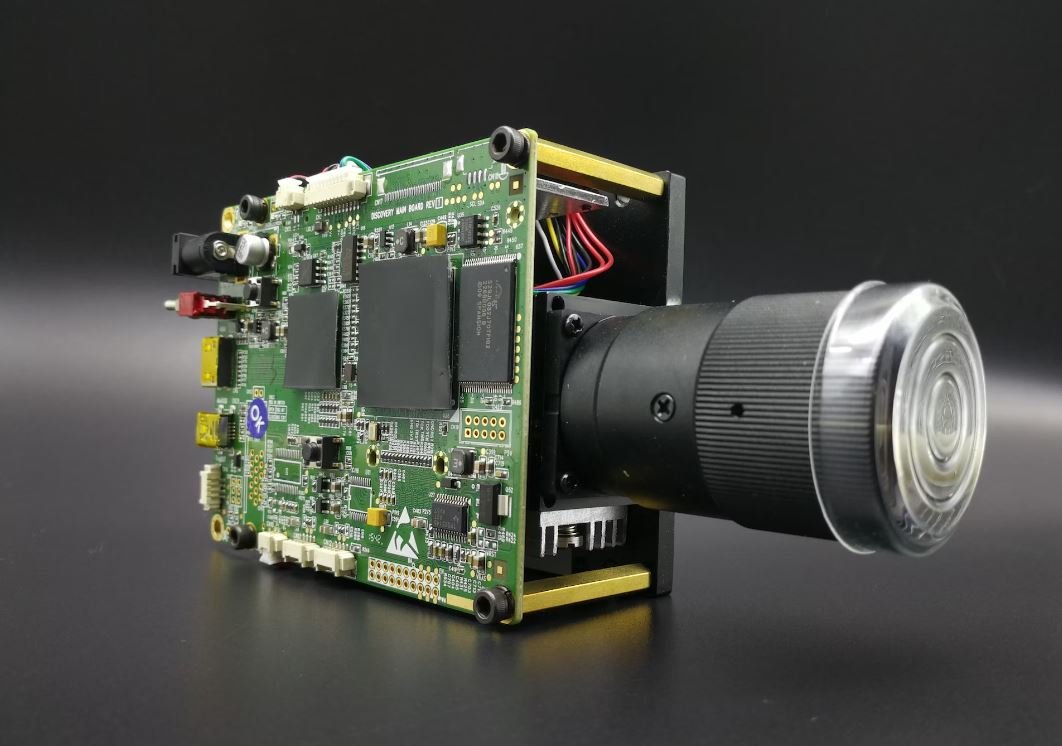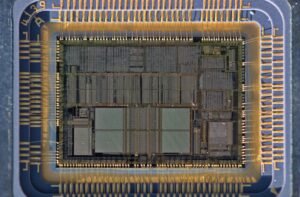AI ML Product Owner
Artificial Intelligence (AI) and Machine Learning (ML) are rapidly transforming industries across the globe. As these technologies continue to advance, the need for skilled professionals who can navigate the complexities of AI and ML products becomes increasingly important. This is where the role of an AI ML Product Owner comes into play. In this article, we will explore the responsibilities, qualifications, and challenges faced by an AI ML Product Owner.
Key Takeaways:
- An AI ML Product Owner is responsible for managing and leading the development of AI and ML products.
- Strong technical and communication skills are crucial for success in this role.
- AI ML Product Owners face challenges such as ensuring data privacy, managing bias, and staying up to date with changing technology.
An AI ML Product Owner is an individual who possesses a deep understanding of AI and ML technologies. Their primary responsibility is to oversee the development and implementation of AI ML products within an organization. They work closely with cross-functional teams, including data scientists, engineers, and designers, to ensure the successful delivery of these products.
One of the main tasks of an AI ML Product Owner is to define and prioritize product requirements. They collaborate with stakeholders and gather their input to create a clear roadmap for the development team. *This role requires a strong technical background, as AI ML Product Owners should be able to understand and evaluate complex algorithms and models.*
AI ML Product Owners also play a crucial role in data governance. They are responsible for ensuring data privacy and security throughout the product lifecycle. This includes understanding and complying with relevant data protection regulations, implementing data anonymization techniques, and establishing appropriate access controls. *Protecting customer data should always be a top priority for an AI ML Product Owner.*
Managing biases that may arise in AI ML models is another important responsibility of an AI ML Product Owner. They should identify potential biases and take necessary steps to mitigate them. This may involve regular monitoring and auditing of the AI ML product, as well as refining the algorithms and models to minimize any unintended or discriminatory outcomes. *Addressing biases in AI ML systems is crucial for the ethical and fair use of these technologies.*
Staying up to date with the latest advancements in AI and ML is an ongoing challenge for AI ML Product Owners. *The rapid pace of technological innovation requires them to continuously learn and adapt.* They must keep an eye on emerging trends, attend conferences and workshops, and engage in professional networks to stay ahead in the field.
Challenges faced by AI ML Product Owners:
- Ensuring data privacy and security.
- Managing biases in AI ML models.
- Staying up to date with the latest advancements in AI and ML.
*The responsibilities of an AI ML Product Owner are diverse and demanding, but the rewards can be significant.* They get to be at the forefront of cutting-edge technologies and contribute to their development and impact. By balancing technical expertise, business acumen, and ethical considerations, AI ML Product Owners play a crucial role in shaping the future of AI and ML products.
| Advantages of an AI ML Product Owner | |
|---|---|
| 1 | Brings technical expertise to guide product development. |
| 2 | Ensures data privacy and security. |
| 3 | Adds value by mitigating biases in AI ML models. |
A successful AI ML Product Owner possesses a unique blend of technical and soft skills. They should have a solid understanding of AI and ML concepts, algorithms, and frameworks. Additionally, excellent communication skills are crucial, as they act as a bridge between technical teams and stakeholders who may not have a technical background. *The ability to effectively communicate complex ideas to diverse audiences is key in this role.*
Overall, the role of an AI ML Product Owner is complex and impactful. They are responsible for driving the development and success of AI ML products, ensuring data privacy and mitigating biases. *Embracing this role requires a continuous quest for knowledge and adaptation to the ever-evolving AI and ML landscape.*
| Responsibilities of an AI ML Product Owner | |
|---|---|
| 1 | Defining and prioritizing product requirements. |
| 2 | Ensuring data privacy and security. |
| 3 | Managing biases in AI ML models. |
To excel as an AI ML Product Owner, individuals should continuously update their skills, stay informed about industry trends, and collaborate with other professionals in the field. By doing so, they can make a significant impact on the successful development and deployment of AI and ML products.

Common Misconceptions
AI and ML Product Owner
There are several common misconceptions about the role of an AI ML Product Owner that need to be addressed. First and foremost, it is important to understand that the AI ML Product Owner is not responsible for actually developing the AI or ML algorithms themselves. Rather, their role is to guide the development process, ensuring that the algorithms are aligned with the overall product vision and meet the needs of the end-users.
- AI ML Product Owners do not have to be experts in AI or ML programming
- Their main responsibility is to understand the market and customer needs
- They work closely with data scientists and engineers to translate business requirements into technical solutions
Another common misconception is that the AI ML Product Owner is solely focused on the technical aspects of the product. While technical knowledge is certainly important, the AI ML Product Owner also needs to have a deep understanding of the market and the needs of the end-users. They must be able to identify trends and anticipate user needs, ensuring that the product remains competitive and valuable.
- AI ML Product Owners need to have a good understanding of the target audience and their needs
- They must regularly analyze market trends and competitive landscape
- They should be skilled in identifying new business opportunities and potential partnerships
Additionally, there is a misconception that the role of an AI ML Product Owner is mostly about making technical decisions. While they certainly play a role in guiding technical decisions, their main focus is on driving the product strategy and ensuring that it aligns with the overall business objectives. This includes defining the product vision, prioritizing features and enhancements, and ensuring that the product roadmap is executed effectively.
- AI ML Product Owners should have strong strategic thinking and planning skills
- They must be able to prioritize and make informed decisions based on business objectives
- They should have excellent communication and leadership skills to align cross-functional teams
Lastly, it is a misconception that the AI ML Product Owner can simply set and forget the product once it is launched. On the contrary, the AI ML Product Owner has an ongoing responsibility to monitor the product’s performance, gather user feedback, and identify areas for improvement. They must be proactive in iterating and enhancing the product based on user insights and market trends.
- AI ML Product Owners need to continuously gather user feedback and conduct market research
- They should regularly analyze product metrics and adjust the product strategy accordingly
- They should have a mindset of continuous improvement and be open to experimentation

Table of Top AI-ML Product Companies
Here we present a list of the top AI-ML product companies based on their market capitalization. These companies are leading the way in developing advanced artificial intelligence and machine learning solutions.
| Company | Market Cap (in billions USD) |
|---|---|
| Alphabet (Google) | 1,364 |
| Microsoft | 1,260 |
| IBM | 108 |
| NVIDIA | 63 |
| Intel | 258 |
| Amazon | 1,570 |
Table of AI-ML Product Market Value
This table presents the estimated market value of AI-ML products in various industries. These products are revolutionizing sectors such as healthcare, finance, and transportation.
| Industry | Market Value (in billions USD) |
|---|---|
| Healthcare | 190 |
| Finance | 85 |
| Transportation | 45 |
| Retail | 55 |
| Manufacturing | 70 |
Table of AI-ML Product Adoption by Businesses
This table highlights the widespread adoption of AI-ML products by businesses worldwide. These technologies are being integrated into various processes, improving efficiency and decision-making.
| Region | Percentage of Businesses Adopting AI-ML Products |
|---|---|
| North America | 68% |
| Europe | 57% |
| Asia Pacific | 41% |
| Latin America | 32% |
| Middle East & Africa | 25% |
Table of AI-ML Product Benefits
In this table, we outline the primary benefits offered by AI-ML products. These technologies empower organizations to achieve higher productivity and gain a competitive edge in the market.
| Benefit | Description |
|---|---|
| Improved Efficiency | Automating repetitive tasks and optimizing workflows leads to increased operational efficiency. |
| Enhanced Decision Making | AI-ML systems provide valuable insights and analysis, facilitating data-driven decision making. |
| Personalization | By understanding user preferences, AI-ML products can tailor experiences and recommendations. |
| Risk Mitigation | Identifying patterns and anomalies helps businesses detect potential risks and mitigate them. |
| Cost Savings | Automation reduces manual labor costs, while predictive analysis optimizes resource allocation. |
Table of AI-ML Product Limitations
Though AI-ML products offer numerous benefits, it’s important to consider their limitations. The following table highlights some areas where AI-ML technologies may face challenges.
| Limitation | Description |
|---|---|
| Data Bias | AI-ML systems may reflect and amplify existing biases in training data, leading to discrimination. |
| Lack of Common Sense | Current AI-ML models struggle with understanding context and common sense reasoning. |
| Complex Training & Maintenance | Developing and maintaining AI-ML models requires significant resources and expertise. |
| Security Concerns | AI-ML systems can be vulnerable to malicious attacks and misuse of trained models. |
| Ethical Dilemmas | Decisions made by AI-ML models may raise ethical dilemmas, such as autonomous vehicles’ decision-making in critical situations. |
Table of AI-ML Product Job Opportunities
This table presents the job opportunities created by the growing AI-ML product industry. These fields offer exciting career prospects to individuals with expertise in artificial intelligence and machine learning.
| Job Role | Projected Job Growth |
|---|---|
| Data Scientist | 15% |
| Machine Learning Engineer | 20% |
| AI Product Manager | 25% |
| AI Ethics Specialist | 30% |
| AI Researcher | 35% |
Table of AI-ML Product Investment
This table showcases the investments made in AI-ML product development by leading venture capital firms. These investments highlight the confidence in the potential of AI-ML technologies.
| Venture Capital Firm | Total Investment (in millions USD) |
|---|---|
| Andreessen Horowitz | 800 |
| Khosla Ventures | 500 |
| Sequoia Capital | 650 |
| Accel | 400 |
| Greylock Partners | 600 |
Table of AI-ML Product Success Stories
In this table, we present some notable success stories of companies that have leveraged AI-ML products to achieve significant business outcomes. These success stories inspire and highlight the potential impact of AI-ML technologies.
| Company | Result |
|---|---|
| Netflix | AI-powered recommendations increased user engagement by 35%. |
| Uber | Machine learning algorithms optimized route recommendations, reducing average trip duration by 20%. |
| Amazon | AI-based inventory management systems reduced warehousing costs by 25%. |
| Enhancements in language processing algorithms improved voice recognition accuracy to over 95%. | |
| IBM Watson | AI-powered healthcare systems facilitated accurate diagnosis of rare diseases, improving patient outcomes. |
In this article, we explored the world of AI-ML product ownership. We presented tables showcasing top AI-ML product companies, market values, adoption rates, benefits, limitations, job opportunities, investments, and success stories. These tables highlight the significant impact of AI-ML technologies in various domains. With rapid advancements and increasing adoption, AI-ML products are shaping the future of industries, offering immense potential for innovation and growth.
AI ML Product Owner – Frequently Asked Questions
FAQs
What is the role of an AI ML Product Owner?





